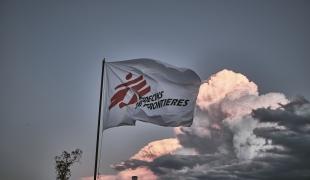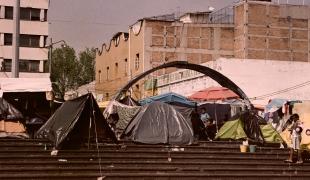Initial MSF internal review: Attack on Kunduz Trauma Centre, Afghanistan
Communiqué de presse
The following document is an initial MSF internal review of the events leading up to, during and in the immediate aftermath of the airstrikes on the MSF hospital in Kunduz on Saturday 3 October 2015. This review is based on debriefings with MSF national and international employees, internal and public information, before-and-after pictures of the hospital including satellite images, emails and phone records. This review is an ongoing process and is not the final internal MSF report of events.
This document reviews the events in chronological order, including background information to our activities in Kunduz for those not familiar with the details of the project.
Background to MSF in Kunduz (2011 – 2015)
MSF had been working in Kunduz since August 2011 when the Kunduz Trauma Centre (KTC) was opened[1]. The KTC is the only facility of its kind in north-eastern Afghanistan. The Trauma Centre provided high-quality, free surgical care to victims of general trauma like traffic accidents, as well as those presenting with conflict-related injuries such as from bomb blasts or gunshots. The hospital had 92 beds, which increased exceptionally to 140 beds at the end of September 2015 to cope with the unprecedented number of admissions. The KTC was equipped with an emergency department, three operating theatres and an intensive care unit, as well as X-ray, a pharmacy, physiotherapy and laboratory facilities. The Trauma Centre employed a total of 460 staff. On 24 June 2015, MSF opened a clinic in Chardara district, 15 km from Kunduz, where nurses provide immediate care to trauma patients before being transported to Kunduz city.
Since the opening of the KTC in 2011, more than 15,000 surgeries were conducted and more than 68,000 emergency patients were treated. As can be seen in the graph below, the total number of patients seen in the KTC has been steadily increasing over time, with a significant peak in 2015.[2]
[1]MSF services in Kunduz were completely free of charge and all patients were treated according to their medical needs and without any distinctions of their ethnicity, religious beliefs or political affiliation.
[2]Violent trauma includes, for example, land mine or bomb blasts, gunshots, stabbing and assault. Unintentional trauma includes, for example, road traffic crashes, falls, unintentional burns, and other injuries.
► Lire notre communiqué de presse
► Lire la lettre du Dr Joanne Liu, Présidente internationale de MSF, à propos de cette revue interne


